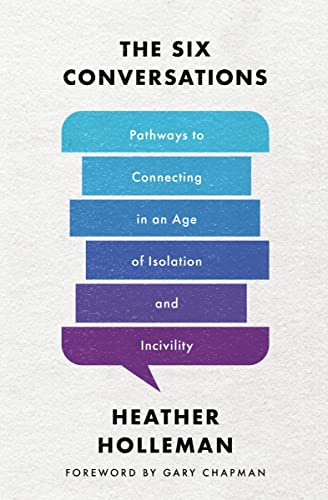

I have been deeply impressed with the importance of loving conversations and concluded they should be recognized and adopted as a spiritual discipline. That is all good, except for the realization I’m not very good at loving conversations. Reasonably decent at conversation, it’s the loving part that’s a challenge.
George Ezell – March 25, 2023
That became apparent, earlier this week, as I attempted to have a conversation with Ann . It was very discouraging to fail to employ insights I have been sharing in my posts.
My failure revealed an absence of — love, patience, kindness, goodness, gentleness, self-control — all qualities necessary for loving conversation and most importantly, fruits of the Spirit.
Despite my daughter’s protest, I will repeat a classic illustration of communication failure for me.
40+ years ago — manager at Ford Motor Company— elder and Bible teacher in our church —loving husband and father of five children — overly confident of my communication expertise; I received this Father’s Day card from our teenage daughter:


Obviously, failure at communication is not a new problem for me. I’d like to think my recent stumble was an abberation, but the truth is, it was’t an exception. Honestly assessing adverse relational experiences reveals a common denominator, communication failure — characterized by either an unwillingness to communicate, or an inability to communicate effectively. Conversely, positive relational experiences, are almost always bathed in meaningful, loving conversation.
Engaging in meaningful, loving conversation is a delightful and rewarding part of being human.
When conversation goes wrong, the potential for anger, pain, division, hatred and harm is real. A significant factor energizing and sustaining current social and political chaos, and dysfunctional personal relationships, is conversation gone wrong.
The pertinent question is “What’s going wrong?”
Chapter 5 – What Goes Wrong In Conversation
As we think about developing satisfying and warm relationships—and the wonderful purpose of meaningful conversations to connect, encourage others, share our lives, and love people well—is a great time to ask what’s going wrong in our conversational patterns.
Self-examination leads to significant improvement in our friendships as we honestly assess toxic patterns in how we relate to others. I know what you’re thinking. It’s other people who make it hard for you to have close relationships. They are the problem, right?
Who Am I ?
Arrogant, my perceived status as a more excellent human being shapes my relations with others. Since he I am superior to others, I do not regard others as having anything to offer me, nor do I believe they have the ability to enrich my life. The views and opinions of others are not of interest to me, and I treat them with disdain. Others owe me, in virtue of my excellence, a special sort of deference. I establish hierarchical and nonreciprocal relationships with my fellow human beings. Relationships marked by a lack of the mutual enrichment … an essential component of true friendship.
OR
a humble person that believes every person offers something of value. Every person I encounter might teach me something, or I might grant them a fresh perspective, or support and help them in just the way they need. A humble person positions themselves to experience awe because of what they experience by being with another person.
Having conversation is a minefield. I want to believe I am a humble person, however, after pondering Halleman’s pitfalls (land mines) to avoid in conversation, it is a miracle I experience meaningful, loving conversations at all. If I ever gave the impression that meaningful, loving conversations are an easy answer, I was wrong.
I’ve got a lot of work to do and time is getting short. Take some time to engage in self-examination of your conversation experiences.
Pitfalls to avoid in conversation
Criticizing
It’s easy for me to find what’s wrong about a situation or a person. I enjoy pointing out what isn’t working or what I don’t like about something. Most of my conversations involve me telling others what offends me or upsets me about someone.
Complaining
It’s natural for me to complain about how bad my day is going. I complain about my work, my problems, my health, and my family. I have a difficult time expressing gratitude or finding out what’s going well.
Advice-giving
When people share a problem with me, I immediately tell them what to do because I have experienced that and have wisdom. I always know what’s best for people.
Self-absorption I love to talk about myself and focus on what I need. When I’m in conversation, I cannot wait for you to stop talking so I can share my ideas and what I need from you. I often speak for long stretches and expect others to listen attentively.
Divisiveness
I often pit people against each other or speak in a way that’s “us versus them.” I believe we have real enemies, and it’s my job to warn you about how bad other people are. I’m not interested in finding common ground with people who believe differently from me about religion or politics.
Flattery I want people to like me, so I find ways to compliment them even if I don’t believe what I’m saying. I want people to feel good around me, so I say disingenuous things. I just want to please people.
Manipulation
In conversation, I like to think about what I can get from a person or how I can use them to my advantage to advance my goals. I believe strongly in networking and in finding friends who have power or prestige so they can help me in my goals. I also speak to people to secretly get them to do what I want.
Codependence
I like people needing me and wanting me to solve their problems. I want my children, spouse, friends, and coworkers to always need me. I also expect others to always be there for me to make me feel better and solve my problems. I’m always checking in on my friends and feel anxious if too many hours go by without me knowing how they are doing.
Gossip
Most of my conversations involve sharing private information about others, talking about the lives of other people, or asking about other people’s misfortunes so I can feel better about myself.
Arrogance
I often believe I am better than others because of my financial status, ethnicity, race, education, or gender. I am bored by the interests and opinions of others and would rather talk about my own ideas. I see myself as superior to others and do not think they have anything of real value to offer me.
This post reinforced my conclusion that loving conversation is a spiritual discipline, however, an interesting perspective has emerged in this process. Rather than just seeing loving conversation as a spiritual discipline yielding spiritual formation, it can also be understood as fruit of the Spirit.
Assuming that debatable perspective to be valid, the presence or absence of loving conversation could be a reliable barometer of spiritual health and vitality, good or ill. For me, that presents some very uncomfortable realities.
My failure revealed an absence of — love, patience, kindness, goodness, gentleness, self-control —
STILL ON THE JOURNEY